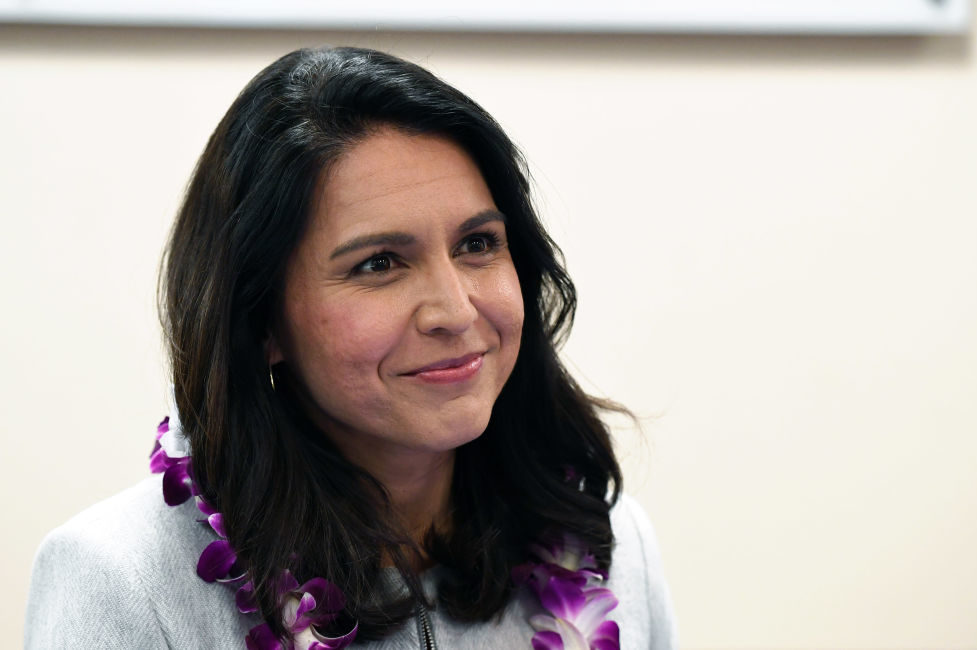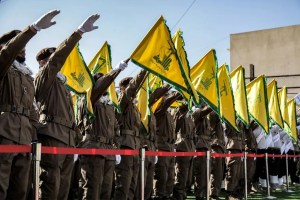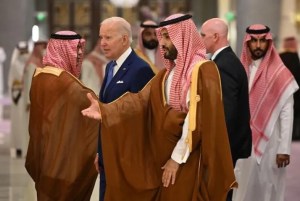The media verdict is clear: the Democrats abhor President Trump’s foreign policy, and the Democrats aren’t really going to talk about it.
‘Democrats want to challenge Trump’s foreign policy in 2020. They’re still working out how,’ reports Vox.
‘Democrats are playing down foreign policy. It’s shrewd — and it may be a mistake,’ opines the Washington Post.
‘Why Aren’t Democratic Presidential Candidates Criticizing Trump’s Foreign Policy?’ wonders Reason magazine. And on it goes.
Behind the scenes, however, it’s a frenzy, with the hiring of foreign policy advisers way up. For the Democrats, 2016 was a two-horse race, with a heavy front-runner in the familiar form of Hillary Clinton. For 2020, the party fields 20 major candidates, with a more doubtful front-runner in Joseph Robinette Biden. And there are still plenty of slots to fill.
Freewheeling Biden is sowing seeds of disunity in his party on foreign policy, most recently by insisting that China is not a problem. Bernie Sanders has objected, and Breitbart News is now calling him ‘China Joe’. Biden may yet become president, but a new hawkishness toward Beijing is among the likeliest of lasting legacies of Donald Trump’s reign. Even a President Biden would have a devil of a time reversing it.
But come summer and the debate stage, how much will the Democrats talk about any of this?
America’s left is in authentic civil war. The Democrats’ urbane, enriched establishment is in tight alliance with the party’s traditional minority constituencies, but a revived left is capturing the anxieties of a collapsing middle class.
The leading lights of both camps are household names. For the establishment, the top three seeds are Biden, Pete Buttigieg, and Kamala Harris. The anti-establishment’s ringers are Sanders, Elizabeth Warren and, more distantly, Tulsi Gabbard. This is a real fight – not like the Republicans, a party that’s 90 percent populist and in revolt only against the lunch room of National Review.
And the two Democratic camps don’t agree on foreign policy. The Democratic establishment may cast a wary eye toward Benjamin Netanyahu’s hardliners in Jerusalem, but overt flirtations with anti-Zionism are smacked down far faster among the party’s establishment than on the party’s left flank. On this topic, Matt Duss, Bernie Sanders’s tough-minded foreign policy guru, is controversial in some quarters. Duss would be a favorite for National Security Adviser under a President Sanders. Seeing him take the keys from John Bolton, tight with the Israelis, would be a sight for the ages – and a supreme irony that America’s first Jewish president would be the most Israel-skeptic Oval Office occupant ever, and possibly confirming as permanent the Democratic drift away from Israel under Obama.
Biden, on the other hand, is a more typical American man of his era on Israel and Palestine. And his chief rivals, Harris and Buttigieg, are of the same ilk. Harris, the senator from California, has been attacked for missing the ‘progressive wave’ she seeks to surf. And Buttigieg has controversially defended some of the IDF’s more forceful actions. If the nominee is from this branch, expect a dialing back of Washington hostilities to Iran, but not a full reversion to Obama-era tensions with Israel.
Similar patterns recur in the cases of China and Russia. On Russia, the establishment represents the Rachel Maddow school of foreign policy analysis: the 2016 election was stolen from Hillary Clinton, one of their own, and Moscow must be put on notice for a generation. Sanders and company, by contrast, are more likely to assail Beijing, the economic executioner of the American working class. Among major Democratic candidates, Gabbard has emphasized Trump’s alleged ties to Russia perhaps least of all, preferring instead to advance a more sweeping critique of American foreign policy.
Relatively speaking, Biden, the establishment front-runner, is no hawk. As Barack Obama’s VP, he quietly opposed action in Libya, and even disapproved of the mission that would eventually eliminate Osama bin Laden. Nevertheless, Biden would represent the kind of paradigm shift that Sanders would. Indeed, Biden’s entire pitch as the alternative to Trump is based on a promise of returning to normality. If Biden wins the nomination, the Brookings Institution can safely break out the chardonnay.
The Democratic silence on foreign policy is motivated by a universal desire to sack Trump, the usurper. But if the establishment, whether under a Biden or a Buttigieg, starts running away with the race, expect the anti-establishment to start making some noise. Gabbard is running a ‘foreign-policy first’ campaign. Sanders and Warren are generally ‘economy first’ politicians, and they have expended significant energy in countering a president and a Democratic elite they see as failing America on the global stage. The Democrats might not want to talk foreign policy now, but their domestic rivalry may yet force foreign affairs into the arena – and that’s before the characteristically unpredictable Donald Trump has driven the debate.


















